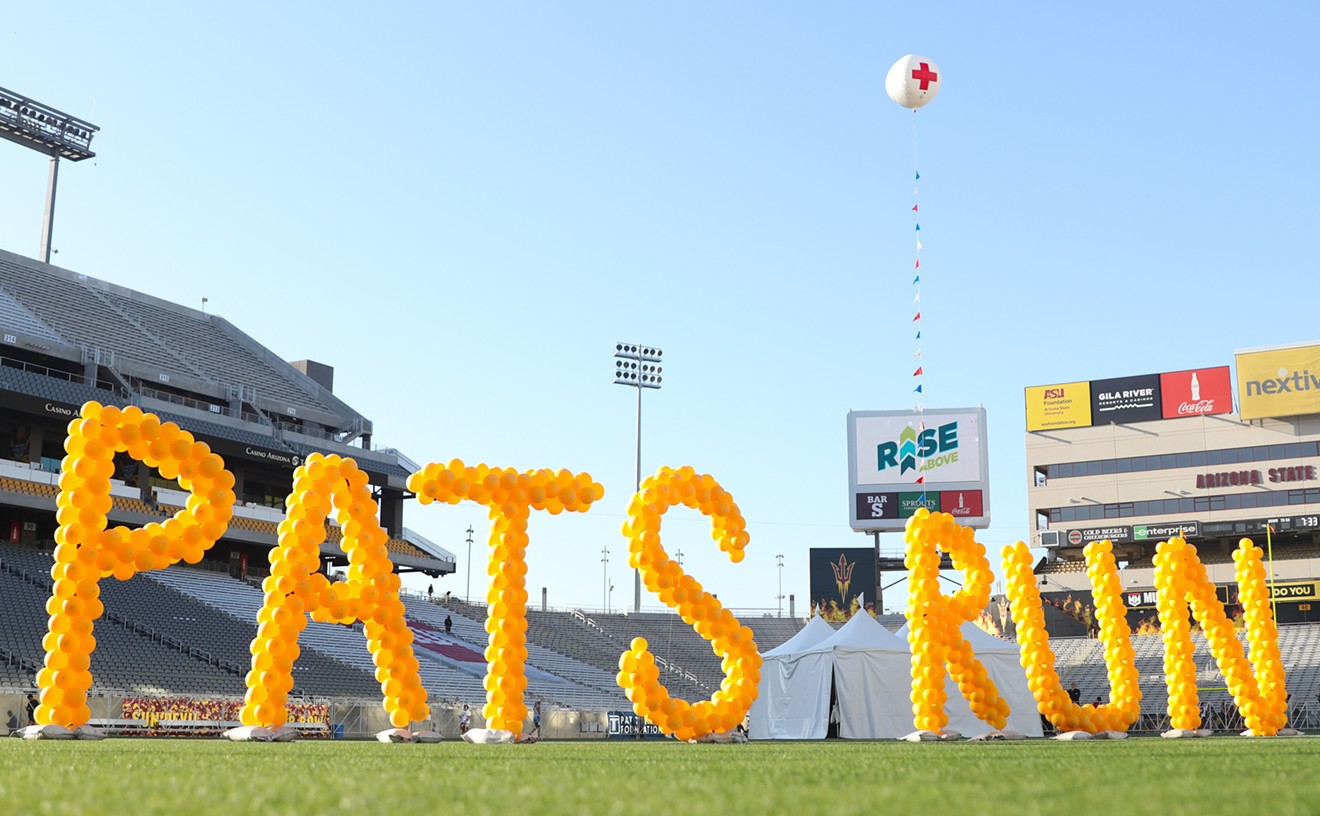It's hard to believe there's anyone left in America who isn't familiar with the premise of this acclaimed play, which Mike Nichols turned into a remarkable film starring Elizabeth Taylor and Richard Burton in 1966. Edward Albee leapt to his lordly position in modern American drama with his long, brilliantly written three-act temper tantrum, which was an instant box-office success in 1962 and narrowly missed the Pulitzer Prize for drama. (In 1963, the Pulitzer jury selected the play for its prestigious drama award, but was overruled by the advisory board, which deemed the script "immoral." No Pulitzer for drama was awarded that year.)
While its moral makeup is hardly relevant anymore, the play still packs a punch; there's nothing delicate or understated about Virginia Woolf. Like Albee's best plays, it's about busting the mythical American Dream; like nearly all his work, it's an emotionally powerful play, psychologically profound and still wildly entertaining. Albee's bigger point is that what appears commonplace almost never is, and that what's below the surface is infinitely more interesting and always more frightening.
In this case, the horror show is the marriage of George and Martha, who relish their disdain for one another. His sin is a failure to live up to the image of Martha's college-president father (George isn't even head of the history department); hers is reminding him of it at every turn. The couple wages a three-hour-long battle in the company of a new teacher in the biology department and his wife, who have been invited to drop in for drinks at 2:00 in the morning after a faculty party. By the end of the evening, all four have exposed their secrets and transgressions and we--if we've been paying attention--no longer believe in true happiness.
There are no topical references, no reference at all, in fact, to the outside world. The universe exists in this bourbon-soaked room which, in a really fine production of the play, becomes a microcosm of hatred and invective.
And this is a fine production--although, at first glance, everything about this Virginia Woolf appears slightly off. The room in which the play takes place is too glamorous; Martha too thin and attractive; Nick a little long in the tooth. As it turns out, only Gro Johre's set is completely wrong.
The sitting room is far too vast and elegant; we're meant to feel hemmed in by George and Martha's cramped, tatty, slovenly front room, and this one is all clean lines and clutter that's too obviously art directed. But once we let go of notions that Martha must always be frowzy, Nick always a youthful stud, we're lost in Albee's delicious dialogue ("I swear, if you existed, I'd divorce you!") and transported by a pair of excellent performances.
Martha is one of those by-now-nigh-unto-impossible roles for any actor to own, thanks to Taylor's indelible screen interpretation and a couple of subsequent stellar performances (most notably Elaine May's 1980 New Haven Martha). Here, she's played with unusual spunk by former Twin Peaks star Wendie Robie. Even at her most disheveled, Robie is ravishing--never the frumpy mess we've come to associate with the role--yet she makes Martha a horror all the same, contorting her face with drunken treachery and braying bitter invective ("I'm going to make the biggest damn explosion you ever heard!") for all she's worth.
Robie is well-matched by Kim Bennett who, as George, has never been better. George is the navigator of this runaway evening, plying everyone with drinks, shifting and derailing the conversation at will, finally ending it with a revelation. But Bennett's George goes further, revealing the suffering and longing within this outwardly nasty, contemptuous man.
Bennett and Robie are fully aware of each other every moment, pacing and circling like a couple of caged panthers. They perform as if they've been traveling with this show for years, rather than rehearsing it for a matter of weeks. The supporting cast, though both accomplished actors, frequently plays at a more routine level. Matthew Mazuroski's is a conscientious reading of Nick, though it's hard to see him as a studly 28 year old, and harder still to understand his loyalty to Honey. Maggie Hunts' performance belongs to another production altogether; her Honey is too goofy, her comedy too broad to fit here, alongside these more shaded performances.
Director Gary Griffin has helmed several productions for Phoenix Theatre, but this one is the first he's gotten exactly right. His Virginia Woolf is different from, but no less valid than, the best-known stagings of this play. His best contribution is having captured the pointed end-of-the-world feel of George and Martha's late-night party, the sense that it really is 3:00 in the morning. The stillness of the night should be palpable; the insular, confined world of George and Martha's sitting room the entire universe we--and they--occupy. Moreover, Griffin has accomplished the play's aim: to whip its cast and audience into a mutual revulsion that leaves us all drained by the final curtain.
The woman I met in the ticket line certainly succumbed. I spotted her during the first intermission, looking dour. During second intermission, she cornered me. "Well, you weren't kidding about all the screaming," she told me. "But I'm staying." She did, too: I saw her there, at the end, leading her own standing ovation.
Who's Afraid of Virginia Woolf? continues through Sunday, April 25, at Phoenix Theatre, 100 East McDowell.










